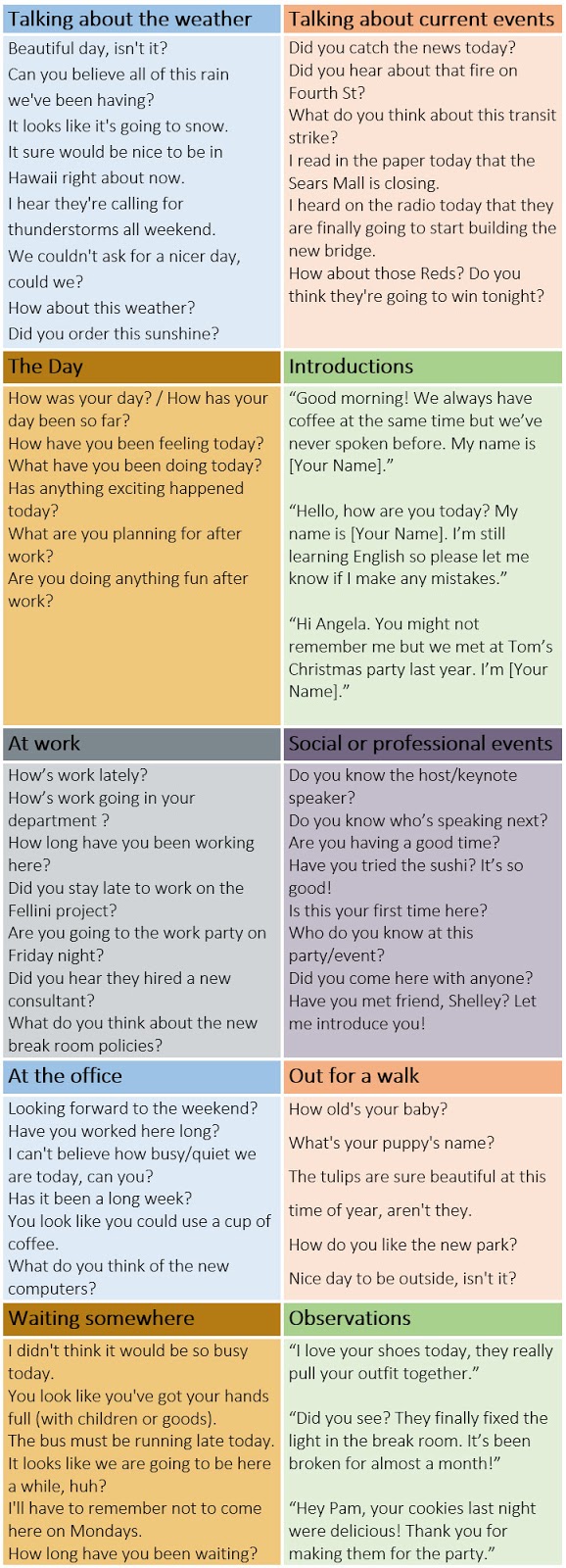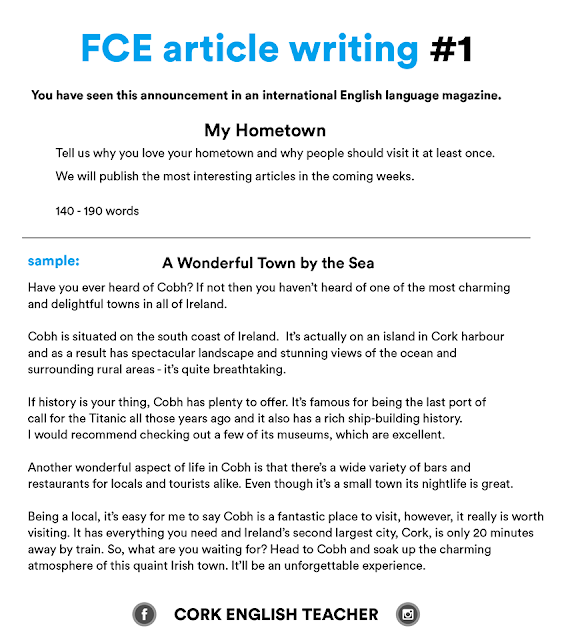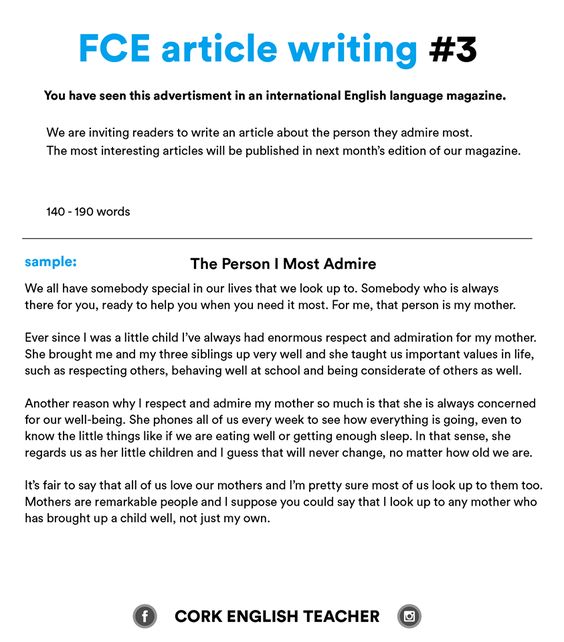
Sunday 27 May 2018
Saturday 26 May 2018
NUMBERS IN ENGLISH

Etiquetas:
BEGINNER,
ELEMENTARY,
INTERMEDIATE,
NUMBERS,
PRE-INTERMEDIATE
Wednesday 16 May 2018
Wednesday 18 April 2018
Friday 6 April 2018
DO YOU LIKE CINEMA? PRACTICE WITH THIS INTERACTIVE MOVIE SCENES VIDEO QUIZ!

Etiquetas:
ADVANCED,
CINEMA,
ENGLISH WITH MOVIES,
ESPECIAL E.O.I.,
GAMES,
INTERACTIVE GAMES,
INTERMEDIATE,
LISTENINGS,
QUIZZES,
TALKING ABOUT MOVIES,
UPPER-INTERMEDIATE,
VLG CINEMA CORNER,
VOCABULARY,
WATCH AND LEARN
Sunday 11 March 2018
DIFFERENCE BETWEEN "FOR" AND "DURING" IN ENGLISH
Difference between for and during in English
The difference
between for and during is pretty confusing for many learners of English.
However, despite semantic similarity, they are used in a different way. The
problem seems to be that in other languages, like in Spanish, these two words
(for and during) are translated as a same word. In the case of Spanish for and
during are translated as durante, which unfortunately for learners is pretty
similar to during.
The use of for in English
The word for is
a preposition which is usually followed by “a/an” or a number, plus a unit of
time (seconds, minutes, hours, days, weeks, months, years, etc.). This
preposition is used to express the duration of something:
I have lived in
Granada for 10 years.
We have known
each other for a couple of months.
The film lasted
for 2 hours.
If we pay close
attention, the preposition for answers always the question “How long…?”:
How long have
you lived in Granada? (For) 10 years.
How long have
you known each other? (For) a couple of months.
How long did
the film last for? It lasted for 2 hours.
In this way, it
is relatively easy to identify when to use for.
The use of during in English
During is
another English preposition which tells us when something happens in time.
Besides, it is usually followed by a noun which is not necessarily a time unit.
Let’s see some examples:
We couldn’t get
any cigarettes during the war.
He died during
the night.
All the hotels
are full during the summer season.
In the same way
as for, during also answers a question, but not “How long…?”, but rather
“When…?”:
When couldn’t
you get any cigarettes? During the war.
When did he
die? During the night.
When are all
the hotels full? During the summer season.
In conclusion,
according to the previous examples, the difference between for and during is
that for tells us how long an action is, while during tells us when something
happened. For this reason, if you ever need to know which one to use, you can
ask yourself: Do I need to answer “How long…?” or “When…?”. It’s
that simple!
SOURCE: keepsmilingenglish.com
Saturday 24 February 2018
Friday 16 February 2018
Saturday 10 February 2018
HABLA POR TELÉFONO EN INGLÉS COMO UN NATIVO: BEFORE & AFTER (WITH AMIGOS INGLESES)

Etiquetas:
BEGINNER,
COMMON EXPRESSIONS,
COMMUNICATION,
ELEMENTARY,
GENERAL TIPS,
INTERMEDIATE,
PHONE LANGUAGE,
PRE-INTERMEDIATE,
SOCIAL ENGLISH,
SPEAKING,
TELEPHONE LANGUAGE,
TIPS FOR SPEAKING,
WATCH AND LEARN
Thursday 8 February 2018
HOW TO BE MORE POLITE IN ENGLISH: COMMON PHRASES TO NAVIGATE THE CULTURE

Etiquetas:
ADVANCED,
COMMON EXPRESSIONS,
COMMUNICATION,
CULTURE,
ELEMENTARY,
GENERAL TIPS,
GOOD MANNERS,
INTERMEDIATE,
PRE-INTERMEDIATE,
SOCIAL ENGLISH,
SPEAKING,
TIPS FOR SPEAKING,
UPPER-INTERMEDIATE,
WATCH AND LEARN
Monday 5 February 2018
Tuesday 30 January 2018
Friday 26 January 2018
Thursday 25 January 2018
FIVE THINGS YOU NEED TO KNOW ABOUT WRITING ARTICLES AND THREE USEFUL SAMPLES TO FOLLOW
Five Things You Need to Know about Writing
Articles
In Cambridge First or Cambridge Advanced,
you might be asked to write an article. But do you know what makes an article
different from other types of writing?
1. The reader is identified
An article is like a direct conversation
with the reader. The exam question might tell you who your readers are. For
example, the students at a school, or the people living in a town or people who
are interested in sports. Everything you write must speak to that reader and
engage their interest right from the first sentence.
2. It has to get attention
If you're anywhere on the internet these
days, you'll be bombarded with articles with headlines that pull the reader in.
It's called "click baiting" and all the writer is trying to do is
make you open the page to read their article. You need to think like a
journalist when you're writing your article.
Look at the heading and the first line of
this article. How did I get your attention?*
3. It has to be interesting
For an article to work, it has to be
engaging enough to read all the way through. Remember how bored the examiner
must be after reading fifty exam papers. Make it easier for them to get a good
impression about your writing by entertaining them. Add humour, real life or
made up examples, or make up quotes.
4. It has to be easy to read
Use subheadings to break up the text and
make clear paragraphs. Write in a semi-informal, conversational style.
And make sure there is organisation to your ideas. The planning stage is vital
for this. Spend 5-10 minutes brainstorming ideas and choose the best
three or four. Think what your subheadings might be and then write a short
introduction that lets the reader know what to expect.
Keep in mind that you want the reader to
keep reading, so don't tell them exactly what they will read. This is not an
essay! In an essay you usually restate the question, explain how you will
answer it and maybe say why it's important. In an article, that will kill the
reader's interest.
Look back at this paragraph. What sentence
style have I used that makes it semi-informal and speak directly to the
reader?**
5. Write a good ending
In an essay you sum up the points that
have gone before and draw a conclusion from that. But in an article, it's
better to give the reader something to think about, perhaps by asking them
another question or giving them a call to action. Often, the best endings link
back to the starting point in some way.
Here are two endings I could use for this
article:
Look at your internet browsing history
from the last day. Which articles got your attention? Can you see how they did
it?
So, now you know how to write an article,
why don't you write one giving advice on something you know about?
Common mistakes students make in articles:
The language is too formal and more suited
to essays. Avoid words like: to sum up, some people say, nevertheless, on one
hand etc.
They don't use quotes or examples.
They either use not enough, or too many,
questions. The questions, called rhetorical questions because they don't
require an answer, shouldn't be more than one per paragraph. Good examples are:
Have you ever ……..?
What do you think about ……..?
Are you one of those people who thinks
that ……?
What would life be like if ……?
Will the future bring us ….. ?
* A title which makes the subject
immediately clear. For some reason, people like reading lists! And a direct,
rhetorical question in the first paragraph to make readers want to find out the
answer.
** I've used the imperative to give
instructions. E.g. Think… Keep in mind… Write… Spend…
SOURCE: www.examenglish.com
Friday 19 January 2018
Subscribe to:
Posts (Atom)














